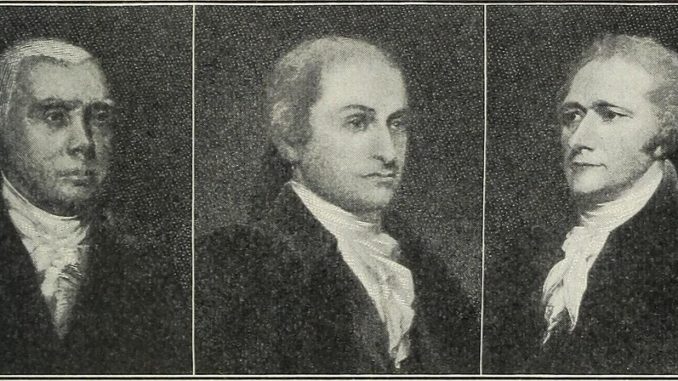
Why the Electoral College?
The Electoral College was designed as a mechanism to elect the President of the United States. While the founders arrived at the Electoral College, other possible ways to elect the President of the United States included allowing the national legislature to choose, give the power to state executive decides, or a national popular vote. Federalist #68 from Alexander Hamilton in The Federalist Papers was an argumentative piece in support of the Electoral College and ratification of the Constitution in the State of New York. Read the excerpt below and answer the questions that follow.
It was equally desirable, that the immediate election should be made by men most capable of analyzing the qualities adapted to the station, and acting under circumstances favorable to deliberation, and to a judicious combination of all the reasons and inducements which were proper to govern their choice. A small number of persons, selected by their fellow-citizens from the general mass, will be most likely to possess the information and discernment requisite to such complicated investigations.
It was also peculiarly desirable to afford as little opportunity as possible to tumult and disorder. This evil was not least to be dreaded in the election of a magistrate, who was to have so important an agency in the administration of the government as the President of the United States. But the precautions which have been so happily concerted in the system under consideration, promise an effectual security against this mischief. The choice of SEVERAL, to form an intermediate body of electors, will be much less apt to convulse the community with any extraordinary or violent movements, than the choice of ONE who was himself to be the final object of the public wishes. And as the electors, chosen in each State, are to assemble and vote in the State in which they are chosen, this detached and divided situation will expose them much less to heats and ferments, which might be communicated from them to the people, than if they were all to be convened at one time, in one place.
Nothing was more to be desired than that every practicable obstacle should be opposed to cabal, intrigue, and corruption. These most deadly adversaries of republican government might naturally have been expected to make their approaches from more than one querter, but chiefly from the desire in foreign powers to gain an improper ascendant in our councils. How could they better gratify this, than by raising a creature of their own to the chief magistracy of the Union? But the convention have guarded against all danger of this sort, with the most provident and judicious attention. They have not made the appointment of the President to depend on any preexisting bodies of men, who might be tampered with beforehand to prostitute their votes; but they have referred it in the first instance to an immediate act of the people of America, to be exerted in the choice of persons for the temporary and sole purpose of making the appointment….
…The process of election affords a moral certainty, that the office of President will never fall to the lot of any man who is not in an eminent degree endowed with the requisite qualifications. Talents for low intrigue, and the little arts of popularity, may alone suffice to elevate a man to the first honors in a single State; but it will require other talents, and a different kind of merit, to establish him in the esteem and confidence of the whole Union, or of so considerable a portion of it as would be necessary to make him a successful candidate for the distinguished office of President of the United States. It will not be too strong to say, that there will be a constant probability of seeing the station filled by characters pre-eminent for ability and virtue. And this will be thought no inconsiderable recommendation of the Constitution, by those who are able to estimate the share which the executive in every government must necessarily have in its good or ill administration. Though we cannot acquiesce in the political heresy of the poet who says: “For forms of government let fools contest That which is best administered is best,” yet we may safely pronounce, that the true test of a good government is its aptitude and tendency to produce a good administration.Federalist #68, Alexander Hamilton
Federalist #68 is available at the The Avalon Project at Yale University
Questions for Completion
1. In what ways does the concept of federalism appear in the Electoral College?
2. What does Hamilton mean when he says the “men most capable of analyzing the qualities adapted to the station?”
3. How will the temporary nature of the Electoral College safeguard against corruption according to Hamilton?
4. Do you find Hamilton’s argument in favor of the Electoral College to be compelling enough to support the Electoral College? Why or why not?
Photo/Image: Eva March Tappan A Short History of England’s and America’s Literature, 1906.